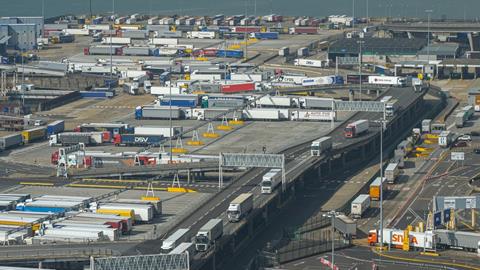Reports that the introduction of the European entry and exit system (EES) has been delayed again beyond next month is “good news for business”, according to Logistics UK.
Rumours that the border checks in the form of biometric information for all non-EU nationals entering the EU, including those travelling from Britain, would be postponed for a third time had been circulating for some time.
Earlier this month, an EC spokesperson was quoted by the BBC as saying that the current November deadline remained, but added: “However, the implementation of a system like EES is a complex operation and delays cannot be completely excluded.”
And this week, national media outlets quoted EU diplomat sources as saying there was very little chance that any version of the EES would be ready to be implemented in four weeks’ time despite an official announcement of its launch date by the European Commission last month.
One source told the Guardian the situation was “a bit of a mess”.
Logistics UK has warned that any congestion or disruption at the border as passengers were processed would have a negative impact on GB exports to the EU, and also for imports.
It said that in a worst case scenario, it could end up costing hauliers £1,100 per truck.
However, it said that its delay should be welcomed by hauliers: “Our members have been warning for some time that if the system is rolled out on 10 November, without robust testing of IT systems and without the availability of an app to facilitate registration away from the border, then costly disruption and delays at peak passenger periods are inevitable for hauliers and GB EU trade,” said its head of trade, Nichola Mallon.
“Analysis we have undertaken with independent modelling experts MDS Transmodal show that even if delays were limited to 90 minutes for the 3.35 million HGVs that passed through the Short Straits in 2023, the cost to the economy would be £400 million per annum.
“This is a cost that the logistics industry cannot just absorb, not least because our members already operate on incredibly narrow margins and are facing rising operating costs that are putting pressure on their ability to keep trading.”
She added that it was encouraging to hear more time was being made available to iron out issues with the new system: “While a new introduction date has yet to be confirmed by the EU, it is vital for our sector that the UK government maintains close conversation with its European counterparts to ensure that the test of member state readiness has, at its core, the smooth flow of freight and trade across the Channel,” Mallon said.
An EU spokesman neither confirmed nor denied the EES was delayed but he told Motor Transport the date of its launch was on the agenda of a meeting of EU home affairs ministers taking place in Luxembourg today (10 October).














